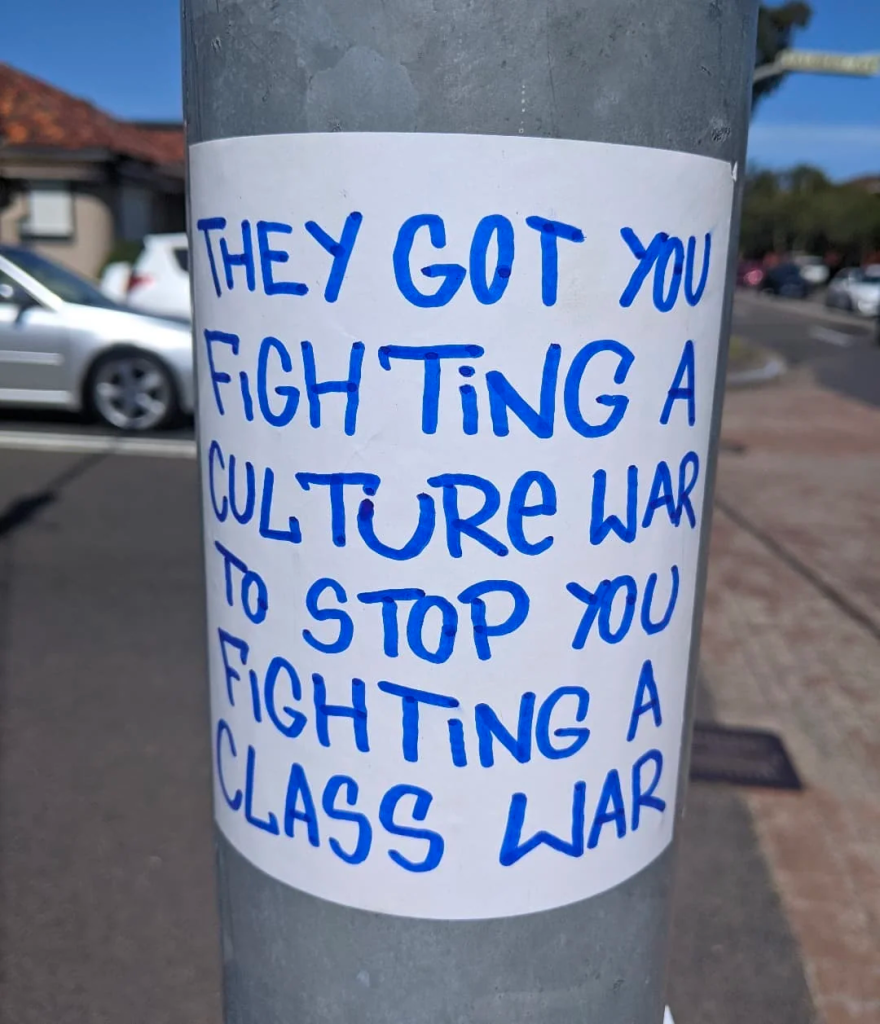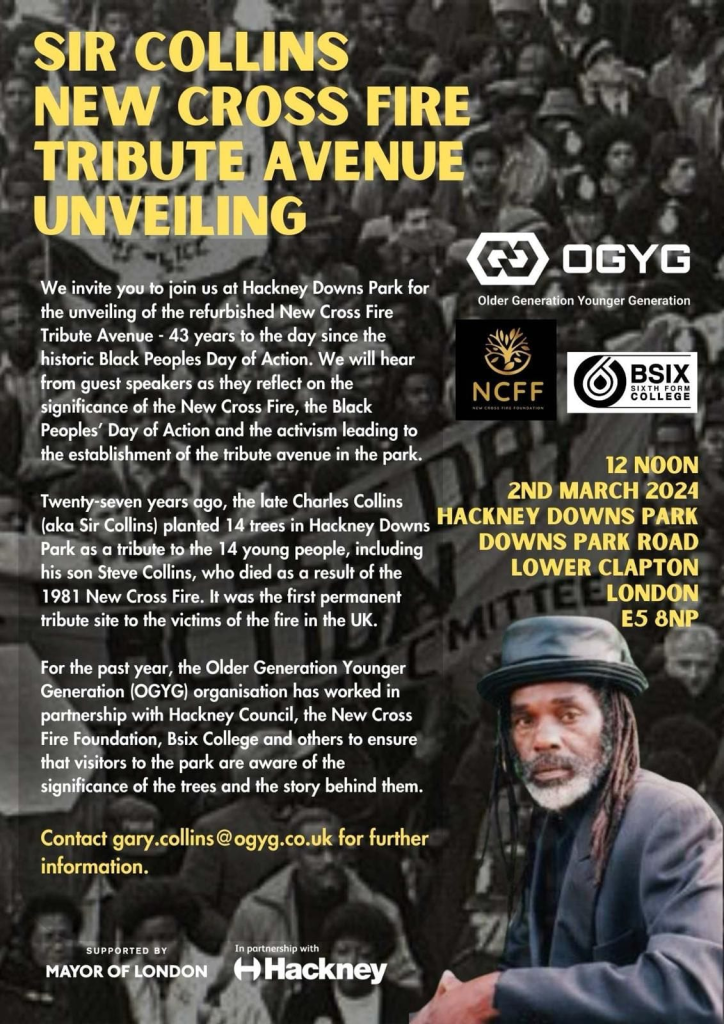Last Thursday, Transport for London (TfL) announced new names for six of its Overground lines and everyone got very angry on social media. For me, this all raised some interesting questions for people invested in London’s radical history and in fostering inclusivity. As well as for observers of the culture wars.

Three of the new lines pass through Hackney:
- The Mildmay line is named after a hospital in Shoreditch (but frustratingly it’s in Tower Hamlets and not Hackney) which has done excellent work caring for AIDS/HIV+ patients. The line comes fairly close to the Mildmay Social Club in Newington Green though, which started life as the Mildmay Radical Club in 1888.
- The Weaver line is named after the waves of immigrant workers in the textile industry in the East End. We have previously covered both women in the rag trade in Hackney and the role of radical Jews in the borough.
- The Windrush line is named after HMS Windrush which is emblematic of the thousands of people from the Caribbean who travelled to the UK from the 1950s onwards, many of whom settled in Hackney. There were celebrations thougout the borough last year to mark the 75th anniversary of the ship’s voyage. The Windrush line includes Dalston Junction Station, which was built following the demolition of the site of the Four Aces – a key venue in the evolution of London reggae soundsystem culture and associated genres like hardcore techno and jungle.
The Suffragette line does not pass through Hackney, but we have previously covered Suffragettes in Hackney and Stoke Newington. I was pleased to hear recently that further work is being done in this area by the Women from Hackney’s History team.
Outrage!
First out of the blocks was the Daily Telegraph, with a righteous defence of the role of Irish people in London:

This is wildly at odds with the Telegraph’s long history of anti-Irish prejudice, which begs the question – what has changed?
The process of Irish people becoming respectable (“white”) in America is brilliantly described in Noel Ignatiev’s classic 1995 book How The Irish Became White and similar forces are clearly still at work in London in 2024. In the conservative mind, Irish people are now an asset to London – compared to subsequent waves of immigrants from elsewhere.
GBnews decried the “woke makeover” of the Overground and The Sun also helped fill up the culture wars bingo card with “virtue signalling nonsense”.
The Daily Mail unsurprisingly found a few people who baulked at the renaming project costing £6m of public money during a cost of living crisis.
Former Boris Johnson cabinet minister Lord Frost captured a mood when he said:
“The London tradition is that public transport lines are given a name either with a royal connection or one related to the line’s geography.
Giving them political names is, whether one agrees with the politics or not, a break with that tradition.”
This is a perfect example of the problem of how a lot of people think about politics (and history). Conservatives sincerely believe that the Royal Family is not political and so they get outraged when people of Irish heritage (or from other colonised nations) take issue with that.
And so to geography. The Bakerloo and Waterloo & City lines are named after an area of London called Waterloo. This is itself a celebration of the 1815 Battle of Waterloo, which marked the end of the Napoleonic Wars. Up to 50,000 people died in the battle.
These things are not political, but the woke Suffragettes using violent direct action to secure votes for women is. And so is naming a train line after women’s football team The Lionesses.
The outrage about the Overground echoes the controversy around historians revealing the connections of various institutions and ruling class families to colonialism and the slave trade. For some, that was not a deepening of historical knowledge, but an attack on a fixed body of facts – which were commonly embodied in statues and monuments. History as tradition and stone versus history as an active process of understanding and re-evaluation.
I am reminded of the Radical History Network of North East London‘s motto:
“Celebrate our history, avoid making the same mistakes – and get inspiration to help create a better society for the future.”
Which brings us to critiques from a more progressive angle…
Is this radical history?

It is important that we celebrate this diverse group of predominantly working class migrants and remember their workplace struggles through trade unions and other organisations.
There are obvious reasons why ethnic diversity is celebrated by Transport for London’s blurb about the weavers, but their struggles around pay and conditions are not mentioned. TfL is notoriously and increasingly anti-union and it is an interesting coincidence that a strike by Overground workers over pay was called off on the same day as the announcement about the renamings.

It is important that we remember that the fighr for votes for women was multi-faceted and that the Suffragettes were amongst its most militant exponents. Exactly 111 years ago a Suffragette bomb destroyed Liberal Minister Lloyd George’s home in Walton-on-the-Hill.
On the other hand, several commentators have pointed out that the woman in the image above is Millicent Fawcett who was not a Suffragette – she was instead the leader of the National Union of Women Suffrage Societies, who deplored the direct action tactics of the Suffragettes. So that’s quite funny.
We shoud defend the legacy of direct action. And in doing so, remember that whenever it is used it is decried by the media, courts and politicians – until enough time has passed for it to be deemed good and proper. This celebration of the Suffragettes is in stark contrast to the UK government’s ongoing clampdown on the right to protest.

It is important that we recognise the contribution of the Windrush generation in spite of the brutal racism that it has faced.
The TfL site does mention that the Windrush generation was “often met with intolerance and denied access to housing, shops, pubs, clubs and even churches on account of their race”.
It does not mention that the origin of this project of migration was in the British Empire, a violent exercise of racist colonisation which received the blessing of the “non-political” Royal Family of the time.
The TfL acknowledgement of “intolerance” does not really do justice to the normalised violence and institutional racism faced by London’s black communities from the 1950s onwards. HMS Windrush will now be forever associated with the Windrush Scandal, in which the Conservative Party’s “hostile environment” for immigrants was directed towards the Windrush generation and its descendants. This resulted in countless detentions, threats of deportation and actual deportations for members of this “celebrated” community.
TfL is correct to point out that “Caribbean communities enriched and expanded London’s music scene.” But back in Dalston, the founders of the influential Four Aces nightclub bore the brunt of British racism. Newton Dunbar was one of the most arrested individuals in Hackney at one point in the 1980s, despite never being charged with anything significant.
Charlie Collins (aka Sir Collins) lost his son Steve in the 1981 New Cross Fire – a tragedy at a house party which is widely attributed to a racist attack. Charlie planted 13 trees in the garden of the Four Aces in memory of the 13 victims.
The trees were destroyed when the area was demolished in 2006 to make way for Dalston Square. A luxury development of 550 apartments was built on the site. Two of the blocks are named Dunbar Tower and Collins Tower. Newton Dunbar commented:
“They called it Dunbar Tower without consulting me. I do not know if they were taking the mickey, or if they had some other more sinister intention. It’s certainly no compensation for the building which was taken from me.”
According to Newton, “the demolition of The Four Aces laid down the roots for the subsequent gentrification of Dalston.”
The Dalston towers overshadowed a botched immigration raid in May 2022, in which Hackney’s residents successfully fought against police brutality. Two months prior to this, it was revealed that Metropolitan Police officers had strip searched a black schoolgirl, ‘Child Q’ without another adult present and in the knowledge that she was menstruating. This led to several significant protests and an inquiry. Giiven the long history of police racism in Hackney it is reasonable to suggest that these two incidents are just the tip of the iceberg.

The culture wars are being waged after a decade of capitalist restructuring (aka austerity), a process which has only intensified since the pandemic. Everyone except the super-rich has seen a rapid decline in living standards during this period – and women, ethnic minorities and those at the sharp end of the economic scale have borne the brunt of it. Arguments about the names of train lines are a distraction from this. (But sometimes a distraction from the doom and gloom of everyday life can be welcome and might even be an inspiration…?)
Complicating history
Where this leads me is that celebrating past victories is not enough. Radical history needs to be more than a checklist of “cool things that happened in my neighbourhood”.
At the very least, we need to recognise the struggles that these victories arose from and the wider context that those struggles existed in.
But more than that, we should be explicit about the suffering that these now “celebrated communities” endured and continue to endure. And be inspired to fight this injustice – and all injustice – in the here and now.
Update 20th February 2024:
Thanks to the commenter who mentioned this forthcoming event in Hackney to commemorate Sir Collins and the victims of the New Cross Fire:


Thanks for the mention!
You mention the trees in memory of the victims of the New Cross Fire
Charles Collins son Gary has an event soon at Hackney Downs- I can send you the info if you haven’t seen it? 2nd March.
Sent from my iPhone
Thanks Sue – glad you saw that! Yes please send a link or something? I am away then but can spread the word maybe.
[New Cross]
Sent from my iPhone
Great article. Would you be interested in talking about this at Hackney History Festival in May? https://hackneyhistoryfestival.org/ - if so please get in touch. Janet
Hi Janet – a few of us are meeting soon to have a think about this and other 2024 plotting.